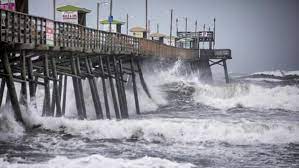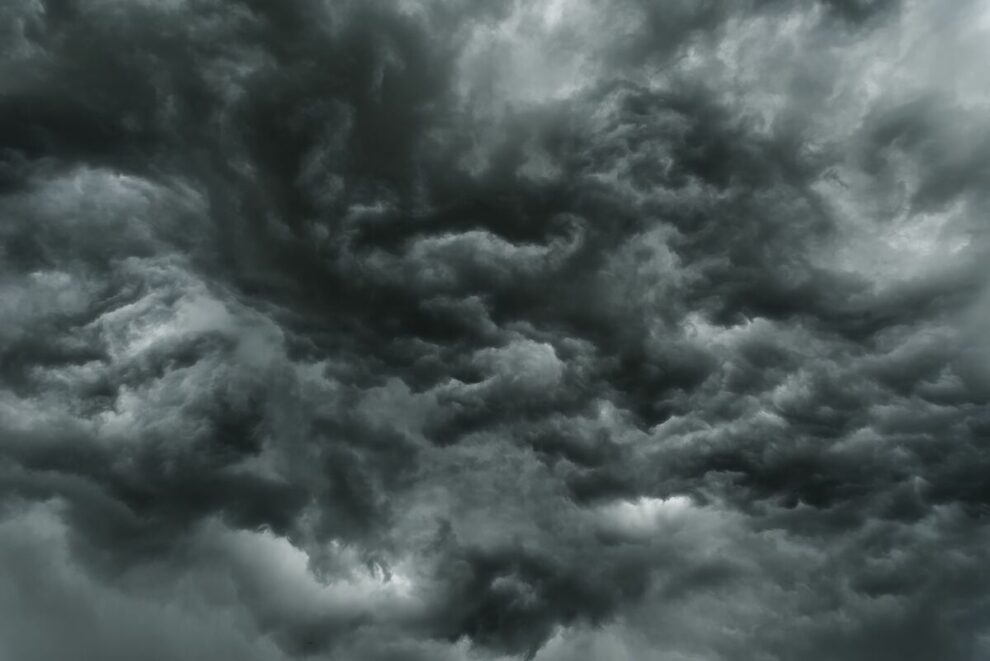Not surprisingly, people continue to insist that hurricane Fiona hitting the Maritimes or Hurricane Ian hitting Florida is proof of, y’know, the alarmists were right all along, the debate is over and if only we had built more solar panels it never would have happened. Amidst the wreckage of these natural disasters the alarmists would have us believe that it’s our own fault, especially the people in a red state like Florida for not being on board with the whole Green New Deal. Into this maelstrom we bring you the newly-updated information page on Global Warming and Hurricanes from the Geophysical Fluid Dynamics Laboratory at the American government’s generally climate alarmist National Oceanic and Atmospheric Administration (NOAA). It’s long and detailed, but we will summarize its main conclusions and quote them so you have them at hand for future reference.
The NOAA page starts off “The IPCC AR6 presents a strong body of scientific evidence that it is unequivocal that humans have caused the earth’s climate to warm, with a likely human contribution of 0.8 to 1.3 degrees Celsius to global mean temperature since the late 1800s.” Which we’ll let that pass here for the sake of argument. They also say that tropical cyclone frequency and intensity might increase in the future. But regarding detection of past trends and attributing them to human influence, “much less is known about human contributions to hurricane/tropical cyclone activity changes to date”. Thus:
“One study finds an increase in the fraction of tropical cyclone intensity estimates of at least Category 3 intensity both globally and in the Atlantic basin, over the past four decades. These observed changes have not been confidently attributed to anthropogenic forcing.”
And greenhouse gases may not even be the important issue: reductions in aerosol (i.e. particulate) pollution may cause more hurricanes to form. And models are showing that hurricane numbers may go down in the future due to greenhouse gases:
“There is increasing evidence from modeling studies at GFDL/NOAA and the UK Met Office/Hadley Centre (UKMO) that the increase in tropical storm frequency in the Atlantic basin since the 1970s has been at least partly driven by decreases in aerosols from human activity and volcanic forcing. Natural variability or changes in Saharan dust emissions may also have contributed to recent changes. The recent GFDL and UKMO studies do not imply that the increase in Atlantic tropical storm frequency since the 1970s will continue into the future: these same models project future decreases in Atlantic tropical storm frequency in response to increasing greenhouse gas concentrations.”
One of the things that made Ian so devastating was the way it slowed down over land and lingered longer than normal. Is that a sign of you-know-what? Not so fast:
“There is evidence for a slowing of tropical cyclone propagation speeds over the continental U.S. over the past century, but these observed changes have not yet been confidently linked to anthropogenic climate change.”
But can we at least say events like Ian and Fiona are happening more often now than in the good old days? Nope:
“There is no strong evidence of century-scale increasing trends in U.S. landfalling hurricanes or major hurricanes, Similarly for Atlantic basin-wide hurricanes (after adjusting for observing capabilities), there is not strong evidence for an increase since the late 1800s in hurricanes, major hurricanes, or the proportion of hurricanes that reach major hurricane intensity.”
The bottom line: “In summary, it is premature to conclude with high confidence that human-caused increases in greenhouse gases have caused a change in past Atlantic basin hurricane activity that is outside the range of natural variability”.
So to the people of Florida and the Maritimes, our sympathies and best wishes for a speedy recovery. And don’t let anyone tell you it was your fault, or that foolish, pointless climate policies would somehow have prevented it from happening, or will ensure it never happens again.



Thank you for your great work. In the face these statements from NOAA, perhaps the NY Times article highlighted in this Tony Heller video should be fact checked.
https://youtu.be/BeYmHgxIncI
Will AFP undertake this task? I doubt it. I believe the fully committed climate alarmists there were the jokers who fact checked CDN earlier this year.
Perhaps this is a job for CDN!!!
BTW - I have donated and will be making an annual donation going forward.
"...but these observed changes have not yet been confidently linked to anthropogenic climate change.”
However with sufficiently increased research funding, we are confident we will be able to make the connection....
"Coincidence is not cause", I know, but the decline in coral coverage postulated to occur during periods of warming of the shallow tropical waters due to lack of circulation by storm activity, matched Obama's "Hurricane Drought", his decade when no major hurricanes made landfall in the US.
The latter period is one of the few occasions when a politicians promise was fulfilled as Obama eclipsed failed King Canute by inaugurating "the moment when the rise of the oceans began to slow and our planet began to heal .."